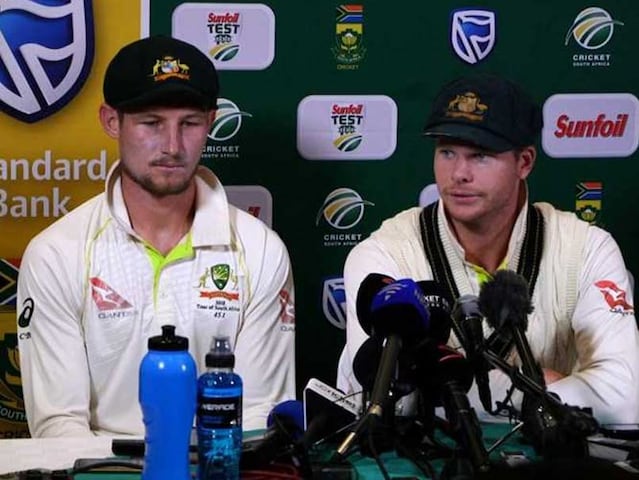Cricket Australia Needed To Do More Thorough Investigation Into Sandpaper Gate, Says Adam Gilchrist
Former Australia wicket-keeper batsman Adam Gilchrist said the ball-tampering episode from 2018 Cape Town Test "will linger on forever" and Cricket Australia needed to do a "more thorough investigation" to find out the root of the problem.
- Asian News International
- Updated: May 17, 2021 12:27 pm IST

Highlights
-
Adam Gilchrist said 2018 ball-tampering episode "will linger on forever"
-
Gilchrist said CA should have investigated the scandal more thoroughly
-
Steve Smith, David Warner, Cameron Bancroft were banned for tampering
Former Australia wicketkeeper-batsman Adam Gilchrist has said Cricket Australia needed to do a more thorough investigation into Sandpaper Gate when it happened and it is due to this reason that the issue will keep on lingering forever. In March 2018, Cameron Bancroft was caught on camera trying to change the condition of the ball using sandpaper in a Test match against South Africa in Cape Town. The incident was later labelled as "Sandpapergate'' and is considered as one of the darkest moments in the history of Australian cricket.
"It will linger forever, whether it is someone's book or an ad hoc interview," Gilchrist said on SEN's Gilly and Goss podcast, as reported by Fox Sports.
"Eventually I think names will be named. I think there are some people who have it stored away and are ready to pull the trigger when the time is right.
"I think Cricket Australia are responsible for why this will be continually asked. When they did their investigation at the time they had Patty Howard the high-performance general manager, Iain Roy was the integrity officer.
"They went there and did this very quick review of that isolated incident and perhaps no one in the team knew. Perhaps Cam (Bancroft) did grab the sandpaper on his own accord and walked out there and did not tell anyone.
"There was an opportunity for CA if they were going to make such a strong statement they needed to do a more thorough investigation to work out where the root of the problem was.
"Anyone would be naive to think people were not aware with what was going on about ball maintenance. I don't think Cricket Australia wanted to go there. They did not want to go any deeper than that superficial example of ball tampering. They did not investigate to see whether it was systemic had it been going on and on and on. Around the cricketing globe it was widely accepted a lot of teams were doing it."
Bancroft, who is playing county cricket in Durham, said it was ''probably self-explanatory'' whether the bowlers were aware that the ball was being tampered with.
"Yeah, look, all I wanted to do was to be responsible and accountable for my own actions and part. Yeah, obviously what I did benefits bowlers and the awareness around that, probably, is self-explanatory," Bancroft said to the Guardian interviewer Donald McRae as reported by ESPNcricinfo.
"I guess one thing I learnt through the journey and being responsible is that's where the buck stops [with Bancroft himself]. Had I had better awareness I would have made a much better decision," he added.
When he was further pressed on whether any of the bowlers knew about the ball-tampering plan, Bancroft replied: "Uh... yeah, look, I think, yeah, I think it's pretty probably self-explanatory."
On the third day of the match, Bancroft was caught on camera trying to alter the condition of the ball.
After the conclusion of the day's play, Bancroft and then Australia skipper Steve Smith admitted that they did tamper with the ball. David Warner's involvement in the act was also confirmed.
Australia went on to lose the match and Cricket Australia took some bold calls as they first removed Smith and Warner as the captain and vice-captain of the side.
Later, the Australian cricket board handed a one-year ban to both Smith and Warner, while Bancroft was given a nine-month suspension. Australia coach Darren Lehmann also resigned after the episode.
